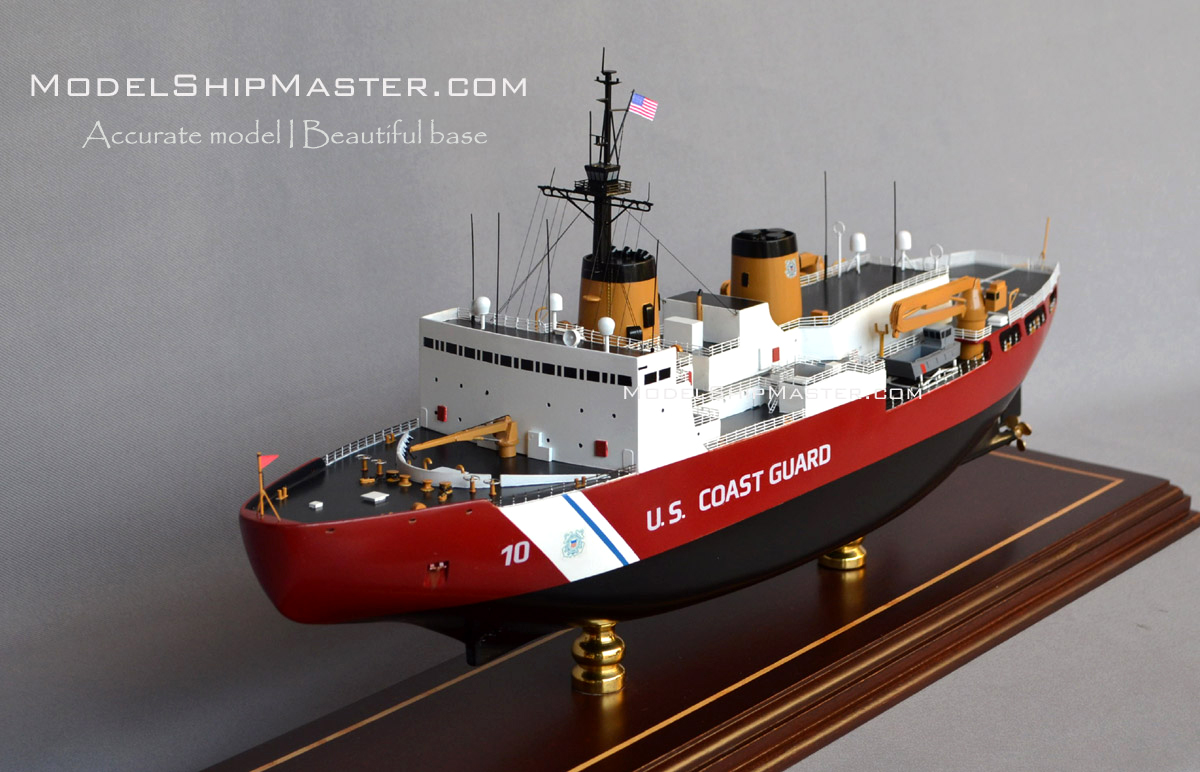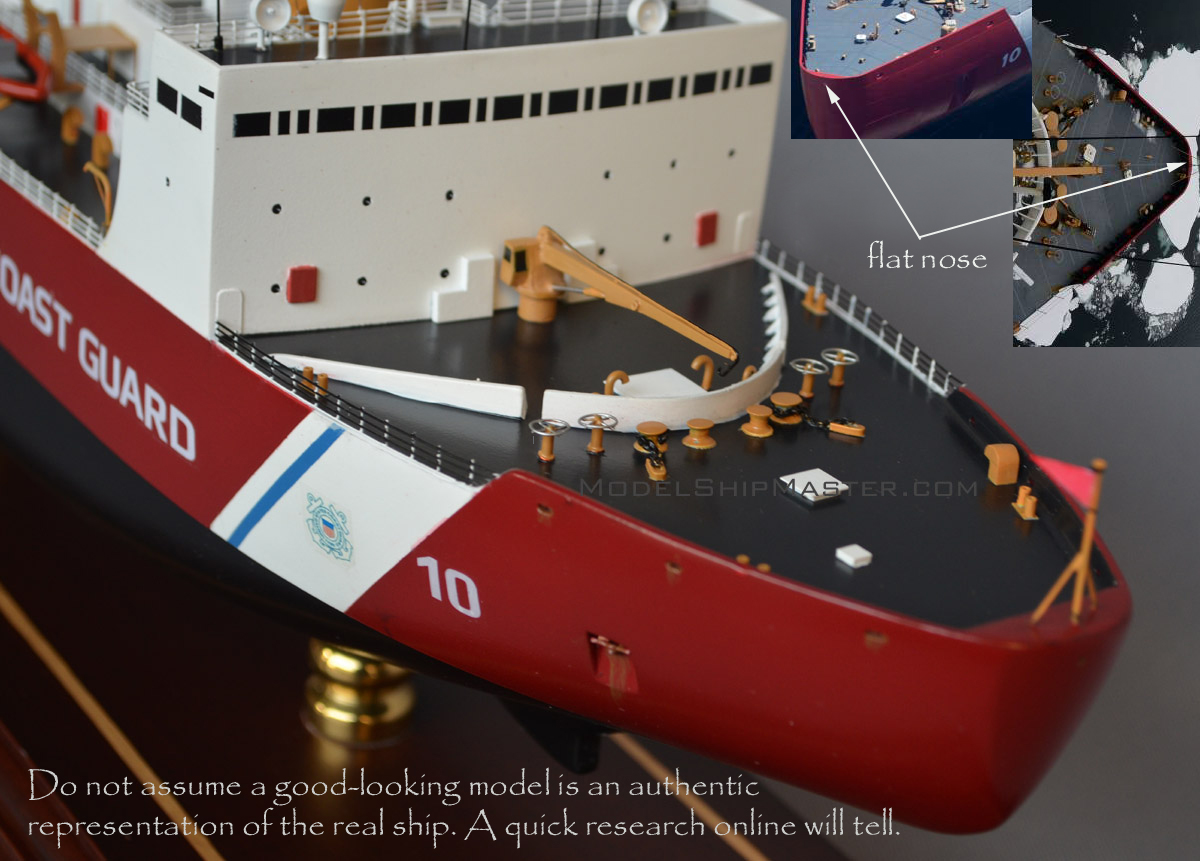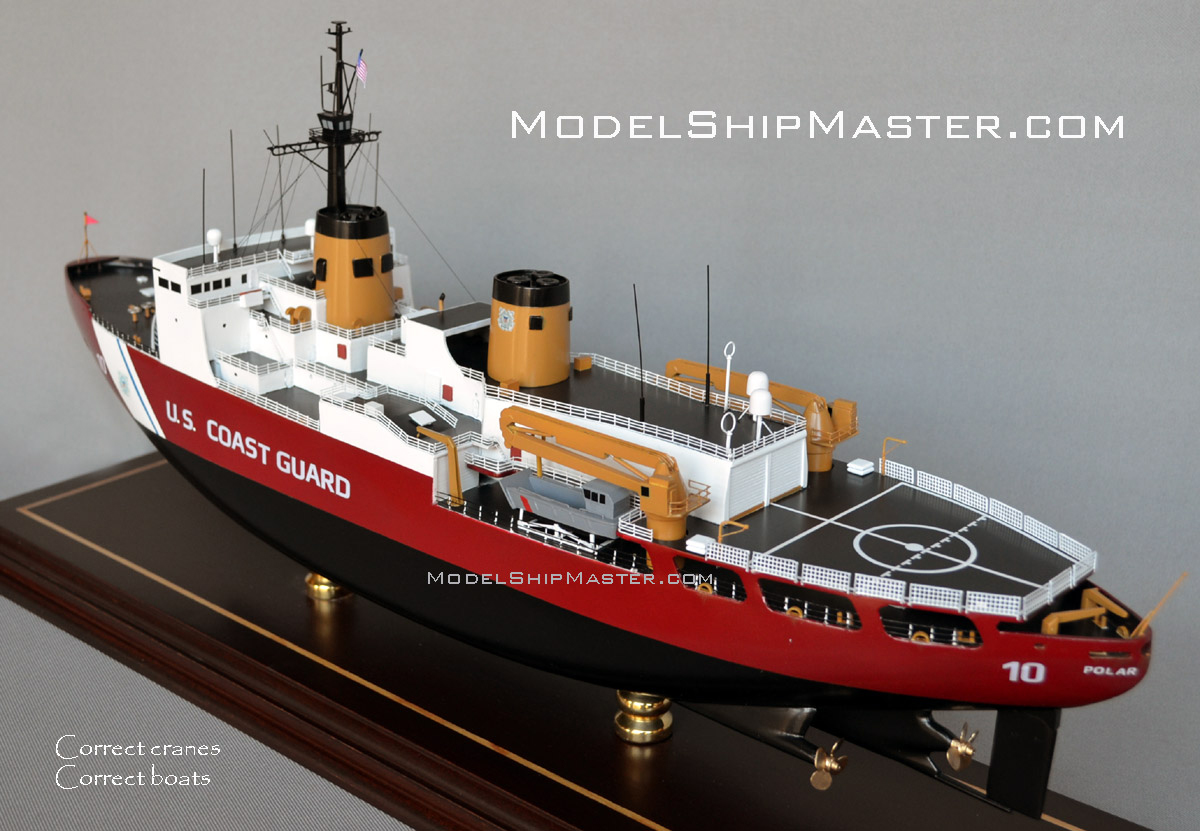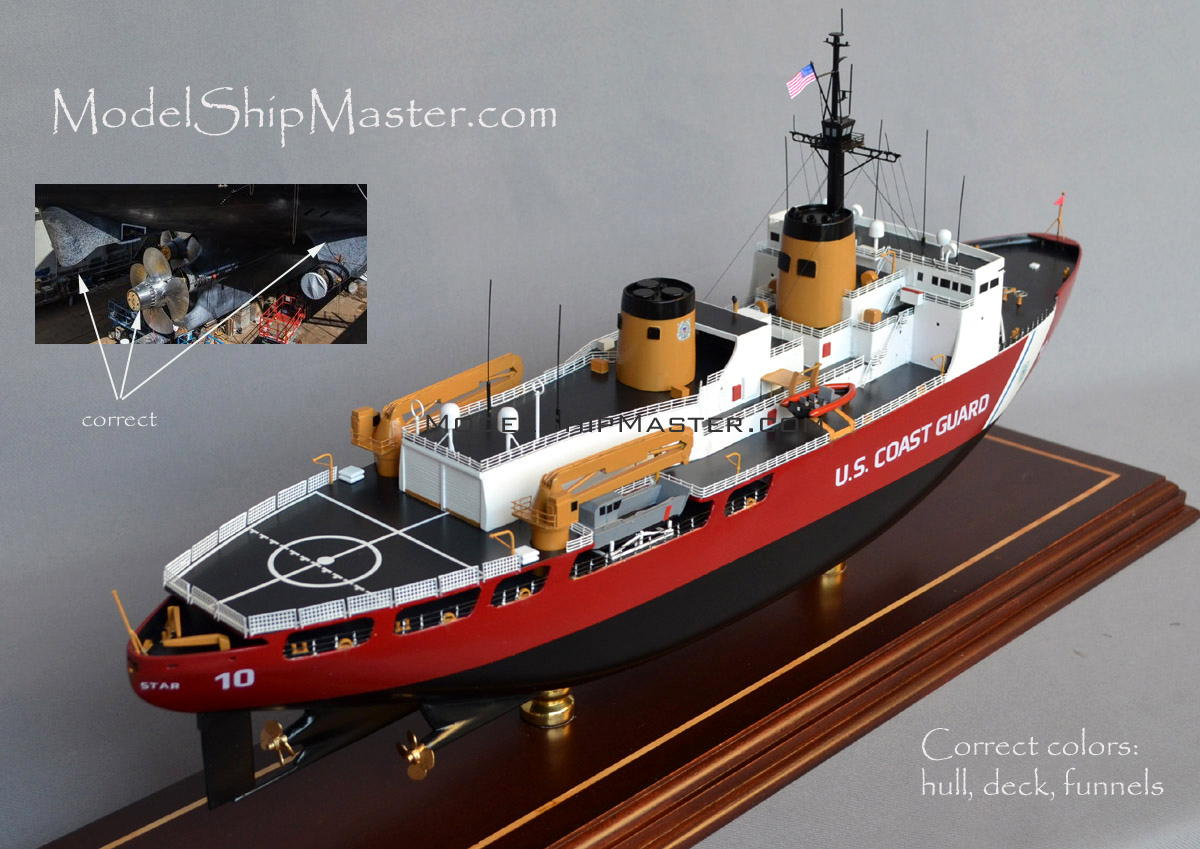|


256-bit encryption
$500,000 protection

|
USCGC POLAR STAR (WAGB-10)
An accurate model of the US Coast
Guard heavy Icebreaker
News: The Coast Guard will make a digital copy of
its only heavy icebreaker
Polar Star:
Canada-based manufacturer Gastops will collect data
on the USCGC Polar Star to create a computer model
that can undergo risk assessments at a relatively
low cost. Engineers will be able to test the
icebreakerís performance during various maneuvers
such as turning and navigating in icy environments.
Based on the trials, engineers can suggest
improvements to the platformís design.

Polar Star is a United
States Coast Guard heavy icebreaker. Built by Lockheed
Shipbuilding and Construction Company of Seattle,
Washington, she was commissioned in 1976. Her three
aviation-grade gas turbine engines churns out 75,000
horsepower, making her the most powerful ship in the US
Coast Guard. Each year, the 399-foot Polar Star travels
to Antarctica to lead Operation Deep Freeze and break
miles of ice up to 21 feet thick.
The U.S. Coast Guard has participated in ice operations
since 1867, when the cutter LINCOLN was dispatched to
survey the newly acquired Alaskan Territory. Early ice
capable cutters were primarily tasked with stopping the
seal trade and enforcing whaling regulations. During
WWII, Congress authorized the USCG to design and build
four new icebreakers, known today as the WIND class
ships. These icebreakers were deployed to patrol the
North Atlantic and assist Russian War efforts. In 1946,
USCGC Northwind made a successful trip to Antarctica. By
1970, the need for a new, more powerful class of polar
icebreakers became clear. In 1976, the world's two most
powerful non-nuclear icebreakers, Polar Star and
Polar Sea, were commissioned and placed into service.
Most Polar Star deployments used to be characterized as
Arctic East Summer, Arctic West Summer, or Operation
Deep Freeze. Arctic East Summer (AES) and Arctic West
Summer (AWS) were generally three-month deployments to
the Arctic ice regions. The primary purpose of those
deployments was scientific research. The J-frames and
winches for coring and trawling operations near the
stern and port side support at-sea studies in the fields
of geology, volcanology, oceanography, sea-ice physics
and other disciplines.
Operation Deep Freeze (ODF) is an annual voyage from
November to March, which traditionally was alternated
each year between Polar Star and her sister ship Polar
Sea. Polar Star now completes the ODF mission each year
since Polar Sea is now decommissioned. The primary
purpose of this deployment is to break a channel in the
fast ice to McMurdo Station, the American base located
near the Ross Ice Shelf. Polar Star then escorts
research and supply vessels into McMurdo.
The Coast Guard needs six
new Polar Security Cutters to ensure national year-round
access to the polar regions and to provide self-rescue
capability.

This primarily wood model
of the Polar Star is 24" long (1/200 scale)
$2,890
 Shipping and insurance in
the contiguous USA included.
Other places: $300 flat rate. This model is in stock and
can be shipped within five business days.
Shipping and insurance in
the contiguous USA included.
Other places: $300 flat rate. This model is in stock and
can be shipped within five business days.
We also build this
model different sizes such as 1/144 (33" long) and
1/96 (50" long).

Our
Polar Star model
is better than that of other makers by a wide
margin. Our research powerhouse is unmatched and our
attention to details unparalleled.
It's
the accuracy that counts. Beautiful yet
intricate details take much more time to make and
require higher skill. When you are comparing models,
use a large-screen
device to view them, as a phone is too small
and all appear the same or different
marginally.

More
accurate Coast Guard models can be found here:
https://www.modelshipmaster.com/products/Coastguard/index.htm
Learn more about the Polar
Star Coast Guard here:
https://en.wikipedia.org/wiki/USCGC_Polar_Star_(WAGB-10)
|